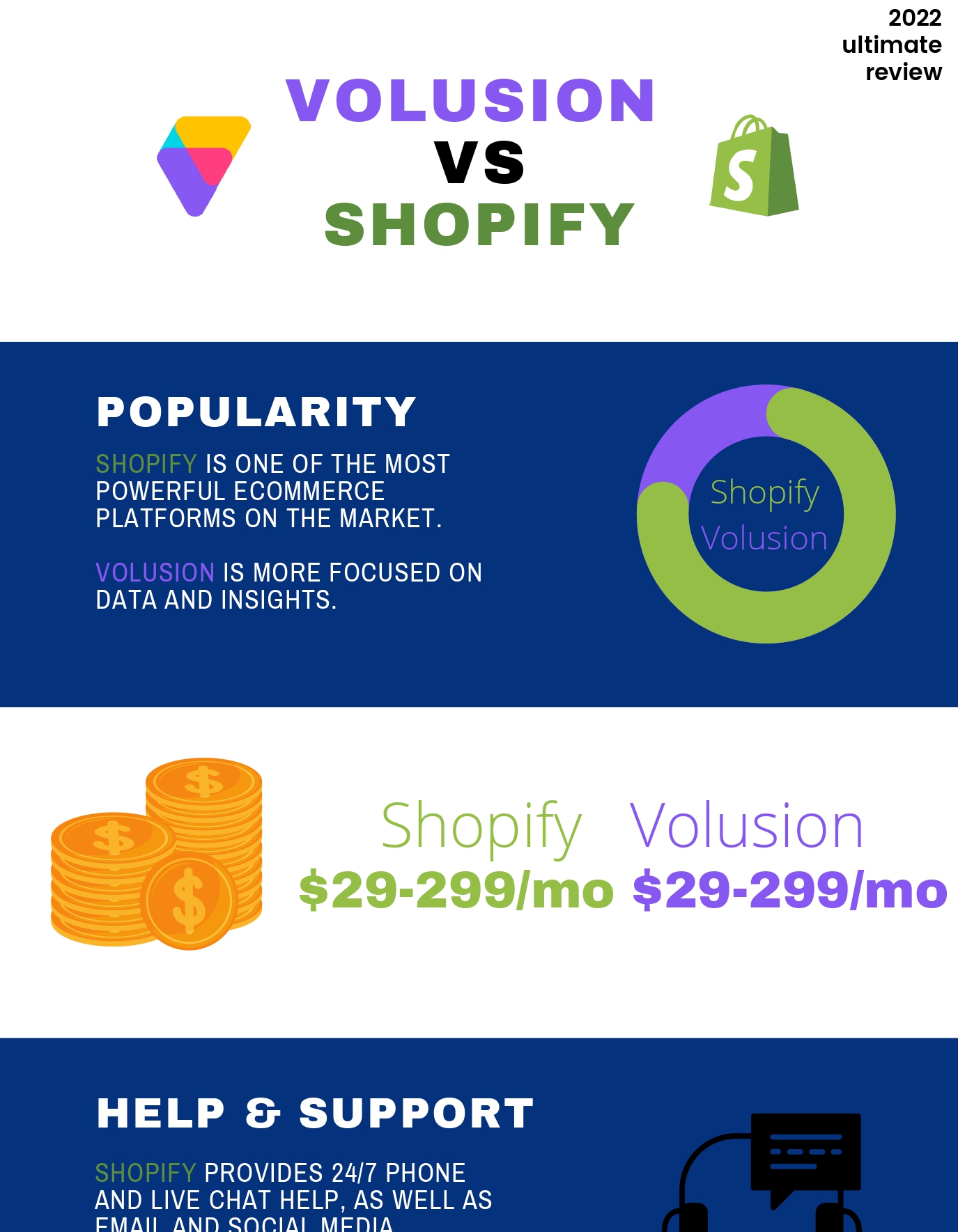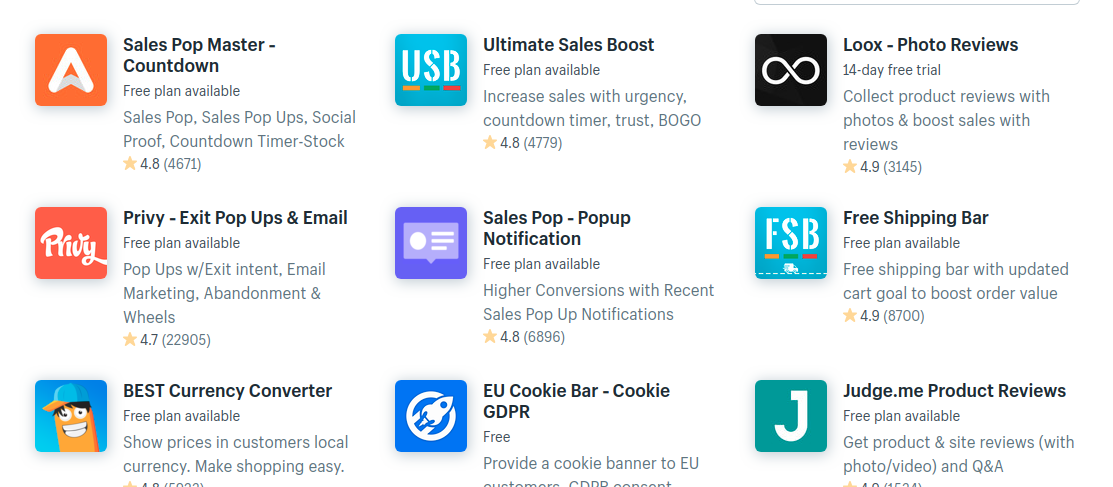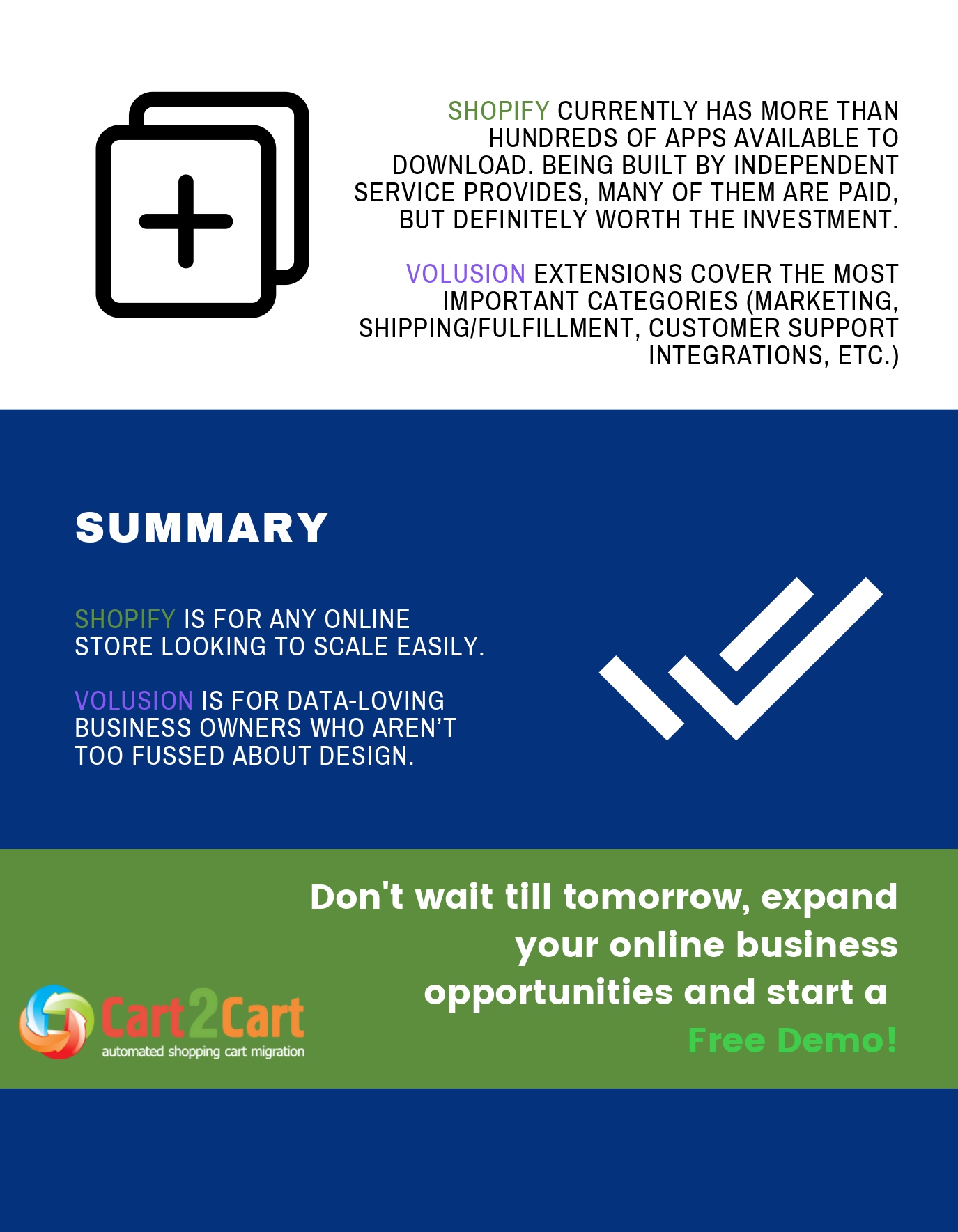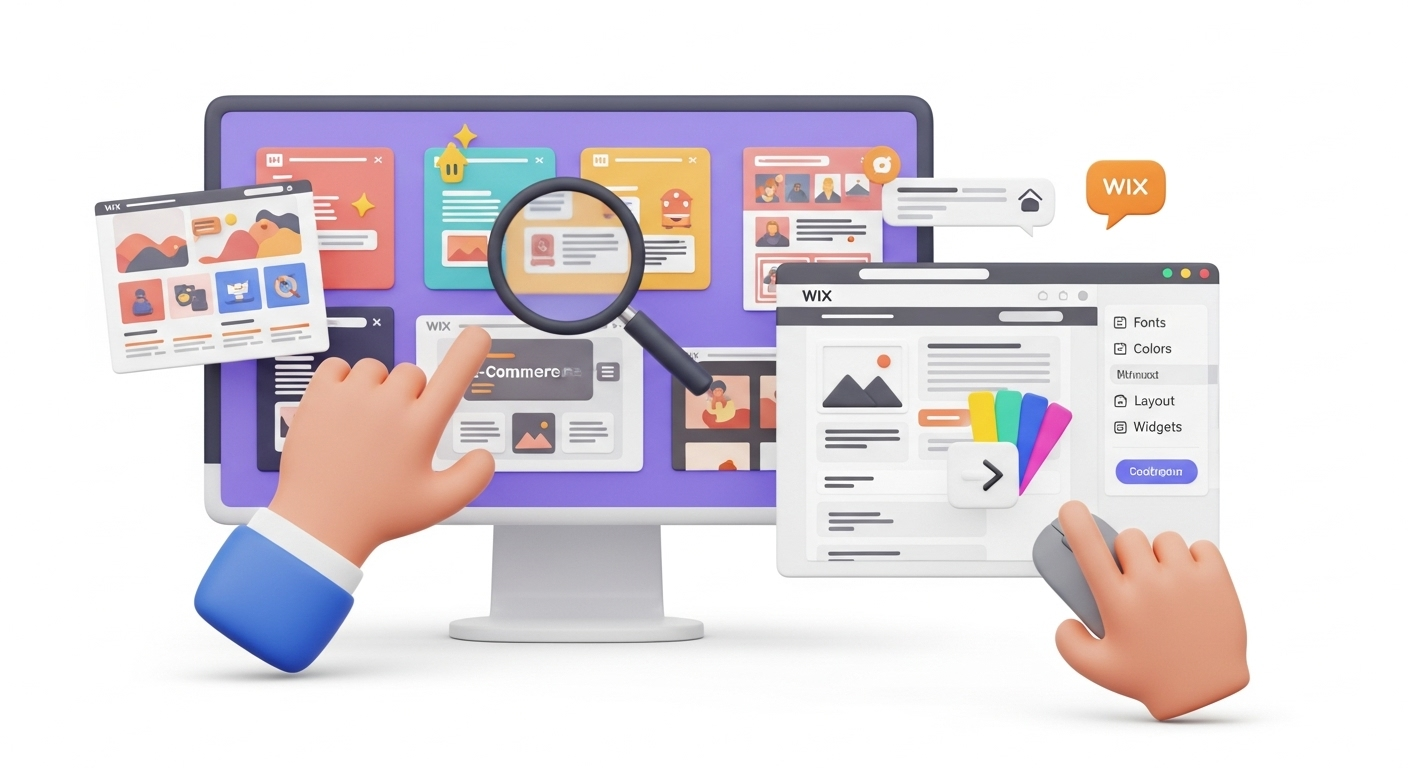Table of contents
Shopify vs Volusion are two quite popular and reputable shopping carts to settle a full-featured online store on. They look pretty similar at first glance. But digging into their dashboards reveals that they have quite different properties. The article aims to compare both carts' strengths and weaknesses and clarify which eCommerce solution fits your specific business requirements.
Shopify vs Volusion: Popularity
Platform's popularity does not equal its quality. Yet, it is a good indicator of how much people trust the solution provider, its credibility in other words.
According to recent data, Shopify powers millions of live websites, showcasing its vast global reach. Volusion, while a reputable platform, supports tens of thousands of live websites. The numbers get even more impressive if to consider the gap between their launch dates - Volusion had entered the business 7 years earlier (1999) than Shopify did (2006).
Google Trends draws the same picture.
How to Migrate Your Online Store to Shopify. 2026 Best Practices & Recommendations
Shopify vs Volusion: Pricing
To begin with, neither Shopify nor Volusion requires any setup costs, offering a 14-day free trial for a test drive to everyone willing to.
Shopify and Volusion are 'software as a service' (SaaS) solutions. Thus, you need to pay a monthly fee to use them. This provides you with all the tools necessary to create and maintain your store: templates, a content management system, hosting, e-commerce functionality, and support. Shopify and Volusion impose monthly fees depending on a pricing plan. Shopify starts at $39 a month for the Basic plan and goes up to $399 for the Advanced one.
It's important to note that unless you're using Shopify Payments to manage every payment processing, the platform will also charge a 0.5%-2% transaction fee every time you make a sale. In return, Shopify provides you with unlimited bandwidth to run the store.
Although Volusion does not have transaction fees (except the one imposed by credit card companies), its bandwidth is a bit limited. Volusion costs typically range from around $39 per month for entry-level plans to several hundred dollars for advanced business solutions.
Shopify vs Volusion: Ease of Use
Aptly combining simplicity and robust functionality, Shopify and Volusion are fairly easy to set up, use, and maintain. Both solutions come with a well-designed yet thought-out user interface. This allows reducing the time needed to get up and start running the store.
Shopify has a bit easier learning curve comparing to Volusion. After starting a free trial, you will get a step-by-step guide on adding products and setting up the store. Volusion, contrarily, lacks this feature, which makes it a less friendly place for a novice.
When it comes to customization, merchants usually feel more comfortable with Shopify. Both platforms give access to the raw HTML/CSS code editor. But Shopify provides a simple, menu-driven method to change the store's outlook. With Volusion, the only way to customize your theme's fonts and colors is via editing raw HTML/CSS. Yet, this requires some tech expertise and extra time.
Shopify vs Volusion: Design
When it comes to design, Volusion leaves Shopify far behind, but in quantitative measurement alone. Though Volusion suggests dozens of attractive templates (a mix of free and premium). In contrast, Shopify has hundreds of themes, including both free and paid options, that look awesome on both mobile phones and tablets, as well as PCs.
The best thing about Shopify themes is that most of them are built by professional designers, making them up-to-date and elegant. Being moderately priced (up to $380 for the most expensive ones), many themes are affordable even for a newly-established store.
Talking about the templates, both Shopify and Volusion offer a wide range of professionally-looking and responsive templates (both free and paid ones).
Shopify vs Volusion: Support
Doing business is never easy. Being a newbie or a professional, you can't omit running into some sort of a problem with your store. Fortunately, both Shopify and Volusion are caring enough to provide each of their users with 24/7 support. You can contact a qualified support consultant either by phone, live chat, or email whenever it's needed.
Also, Shopify has a dedicated forum. Thus, you can interact with an extensive Shopify community at once. Apart from technical issues, you can discuss business-related questions there too.
Shopify vs Volusion: Extensions
It is impossible to build a full-featured store without utilizing some extensions. They automate some of the mind-numbing, everyday operations and expand your store's functionality, adding new, previously inaccessible features.
Both Shopify and Volusion have marketplaces for developers to publish their creations and for users to download them. Shopify currently boasts hundreds of thousands of apps available to download. Being built by independent service provides, many of them are paid, but definitely worth the investment.
How to Migrate from Volusion to Shopify Without Impacting Revenue [2026]
Though Volusion extensions cover the most important categories too (marketing, shipping/fulfillment, customer support integrations, etc.), with hundreds of apps available to choose from. This bitter fact gives Shopify a big advantage over Volusion.
Check out our infographic to get a better understanding of the migration process via Cart2Cart:

Which Is Better to Choose - Shopify or Volusion?
Volusion offers more design options and has no transaction fees. Shopify, contrastingly, can boast of unlimited bandwidth and an extensive marketplace. So, take time to consider your objectives, goals, and preferences to make the decision that will surely take your online business a level up.
Shopify vs Volusion - FAQs
Which builder is better for growth, Shopify or Volusion?
While Volusion's data tools are useful for expansion, it can't compete with Shopify. The Shopify platform offers a wide range of features that are ideal for growing your business and boosting your sales. There is almost no limit to the potential of its app store. Additionally, it has better inventory management tools if your store grows and needs more space.
Which builder is easier to use?
Despite its simplicity, Shopify is a bit easier to use than Volusion. Both have a backend and frontend editor, but Shopify's simple menu bar and helpful tips make this much easier to manage. In spite of their similarities, Volusion is more obscure and has a steeper learning curve.
Do I need my own domain name?
In order to sell with Shopify or Volusion, you must purchase a custom domain before launching the site. You can buy your domain name through the builder you choose, but it's generally recommended that you keep your domain name separate from your eCommerce platform. Additionally, buying your domain name through a builder is usually more expensive. A custom domain will give your store a professional appearance and help it be taken more seriously.
All in all, no matter which shopping cart you'll stick with - Cart2Cart automated migration service can more than help you go through the Shopify to Volusion or Volusion to Shopify migrations hassle- and trouble-free. Besides, you can take advantage of the free a Free Demo to try everything out.
Monthly Update – March 2026
As we step into March 2026, the e-commerce landscape continues its rapid evolution, with a significant emphasis shifting towards robust omnichannel strategies. Modern consumers expect a seamless and integrated shopping experience across all touchpoints, whether they are browsing on a mobile device, engaging with social media, visiting a physical store, or interacting through a marketplace. Leading platforms such as Shopify and Volusion are adapting to this demand by providing enhanced tools and integrations that allow merchants to unify their operations. This includes synchronizing inventory levels in real-time, consolidating customer data for personalized marketing efforts, and managing sales effectively across diverse channels. Implementing a comprehensive omnichannel strategy is no longer a luxury but a necessity for sustained growth, as it significantly improves customer satisfaction, fosters stronger brand loyalty, and ultimately drives increased conversions. Businesses are encouraged to audit their current customer journeys, invest in data analytics to understand cross-channel behavior, and ensure a consistent brand voice and experience wherever their customers choose to engage. This integrated approach ensures that every interaction adds value, preparing your store for future success in a competitive digital marketplace.
For more details, explore our FAQ section or schedule a call with a migration expert.












